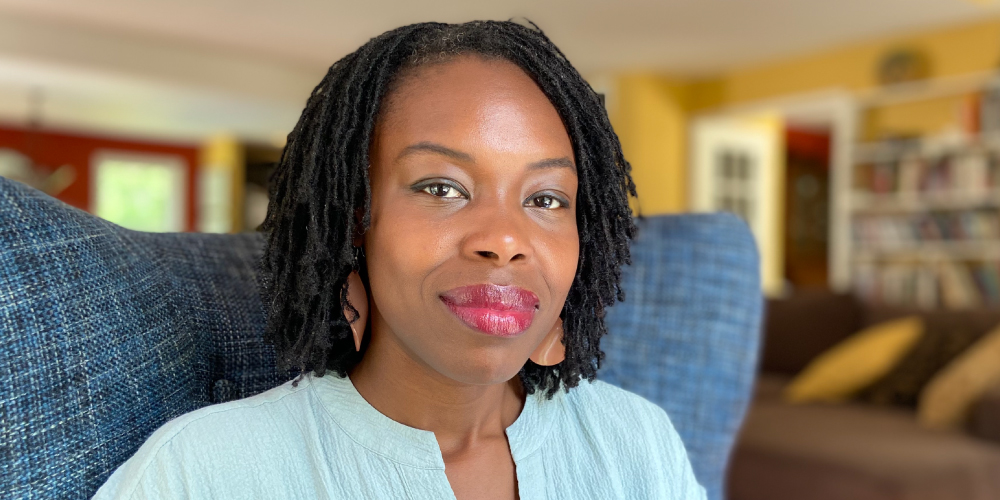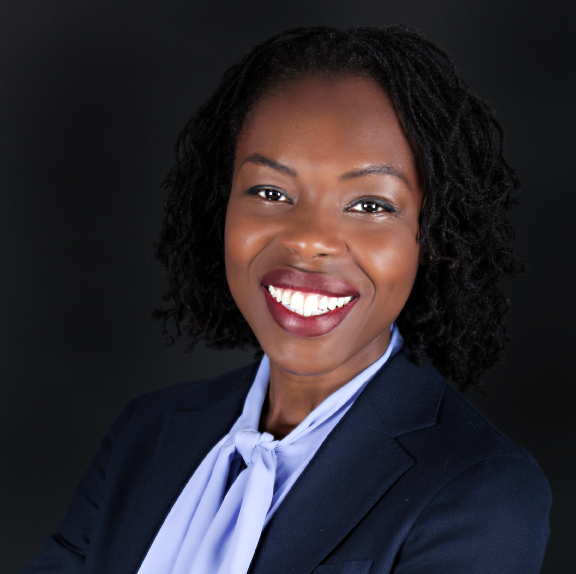A Moment with Dr. Heather Cole-Lewis is part of our interview series featuring thought leaders in research and healthcare. Each interview includes 7 short and stimulating questions.
Dr. Heather Cole-Lewis is passionate about improving health by understanding people in the context of their lives. Currently, Dr. Cole-Lewis works at Google as a Health Equity Clinical Scientist, where she provides strategic business and scientific guidance on products, research, and partnerships that influence health.

1. Tell us something we don’t know. (Anything!)
I lost my first child at the end of my second trimester of pregnancy. My husband and I have since welcomed two healthy children into the world, but my first pregnancy experience renewed my commitment to the challenge of improving health and wellbeing outcomes at scale.
I also mention our loss because, though experienced by many, pregnancy loss often goes unspoken. It is important to normalize discussion about this part of life as well.
2. Which fiction book would you recommend to researchers and innovators in healthcare, and why?
Ada Twist, Scientist is a children’s book I often read to my little ones. Ada is a curious young girl, determined to find the answers to questions concerning the world around her. She is a bit misunderstood by her peers and parents, but she perseveres. By the end of the book, she has convinced everyone around her, including her parents, teachers, and classmates, to join her in using the scientific method to address unanswered questions.
Ada’s approach to science is a reminder to innovators in the health space to remain curious about life, persevere in the face of societal pressure, maintain rigor in one’s methods, and leverage the skills and strengths of others to collectively problem solve as a community.
3. What are you working on right now that you’re excited about?
I am most excited about the work I am doing to help people who design products, conduct research, and develop or fund community programs to understand how even minor adjustments can create systemic change that improves lives by creating equitable opportunities for better health and wellbeing.
When I sit down at the proverbial table to help create solutions that make people healthier, I bring my full self— the behavior scientist, the epidemiologist, the informatician, the health tech business expert, and the human with rich life experiences. I lead with the part or parts of myself most relevant to the people with whom I am sitting. Nonetheless, I bring all of my training and experiences to ensure that we make every effort to center the communities who will ultimately be impacted by the decisions made at the table. This may even mean I advocate that we all get up and move over to a completely different table— one set by the communities themselves.
4. Who’s doing something that you admire in healthcare today, and why is it so incredible?
There are so many! I admire people who are taking a look around them and using their skills and strengths to influence systems that affect health outcomes. Those who operate with the understanding that people from all walks of life have similar basic needs, including the need to be seen, respected, feel safe, and to laugh.
5. What’s the biggest barrier to getting things done in your line of work?
Improving health requires a systems approach. Full stop.
The biggest barrier to getting things done in my line of work is the tendency to want to improve health and wellbeing by focusing solely on the individual without proper consideration for the system or systems that surround the individual. It is correct to focus on the individual and use their experiences as an anchor point to gain understanding of the system, but that individual might not always be the most appropriate point of intervention. We may instead have more success influencing the people, places, or policies that surround the individual. Also, sometimes the answer to improving health has nothing to do with the healthcare system, and that is okay.
6. Imagine you win an award for impacting healthcare. What did you do?
At least one award will be for developing new avenues to shift the paradigm of “evidence-based practice” to include and honor the “practice-based evidence” that has been accumulated by various communities through lived experience and development of coping mechanisms that have allowed them to thrive despite the odds.
Another award will be for serving as a sponsor and mentor to the next generation of healthcare innovators that lead with empathy, center communities, and transform businesses that impact health and wellbeing.
7. What advice would you give innovators in healthcare?
At all times, and in all your work, strive to acknowledge our assumptions, privilege, and limitations. Science is iterative. The science of humans, health, and technology are ever evolving. Humans have bias and we live in flawed societies. We should be okay with being honest about what we know and what we don’t know so that we can continue to build upon existing knowledge and fill gaps in places where we do not know much or where we have made mistakes in the past. There is great promise in technology and there are wonderful biomedical advancements on the horizon. We will get much further if we approach our work in health technology with humility, a collaborative spirit, rigor in measurement and iteration, and a commitment to focus on individuals in the context of their lives and utilize our resources accordingly.
Dr. Heather Cole-Lewis

Dr. Heather Cole-Lewis is passionate about improving health by understanding people in the context of their lives. She is an accomplished leader with deep cross-sector experience, a strong scientific background in digital and non-digital evidence-based solutions, and a proven ability to develop, drive, and measure the impact of systematic business processes that enhance health outcomes and critical business outcomes. She brings her analytical lens to crafting solutions to complex public health and healthcare issues that often require coordination across multiple stakeholders. Deep experience in researching, engaging, and communicating with community partners has given Dr. Cole-Lewis the necessary skillset to address systemic issues related to health equity.
As a Behavioral Epidemiologist with training in Biomedical Informatics, Dr. Cole-Lewis has a unique talent in combining behavior science, data science, and technology to expand the reach of evidence-based health strategies to support groups that have been historically marginalized. Her research and professional experiences span multiple disease states in both domestic and international settings.
Dr. Cole-Lewis currently works at Google as a Health Equity Clinical Scientist, where she provides strategic business and scientific guidance on products, research, and partnerships that influence health. Prior to Google, Heather worked at Johnson & Johnson as a Global Lead for Health Equity Investments and before that as a Behavior Scientist.
Dr. Cole-Lewis earned her PhD in Chronic Disease Epidemiology from Yale University, her MPH in Behavioral Science and Health Education from Emory University, and her MA in Biomedical Informatics from Columbia University.